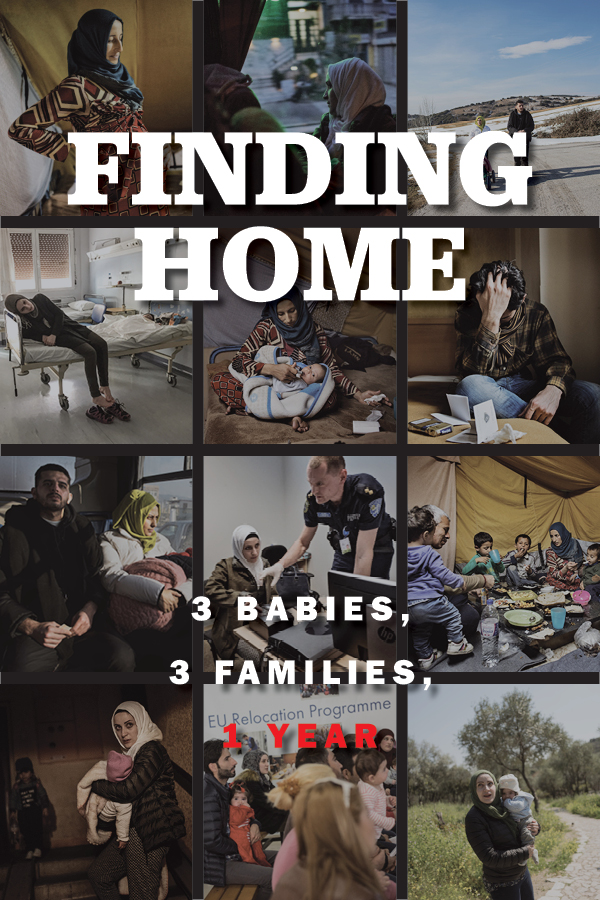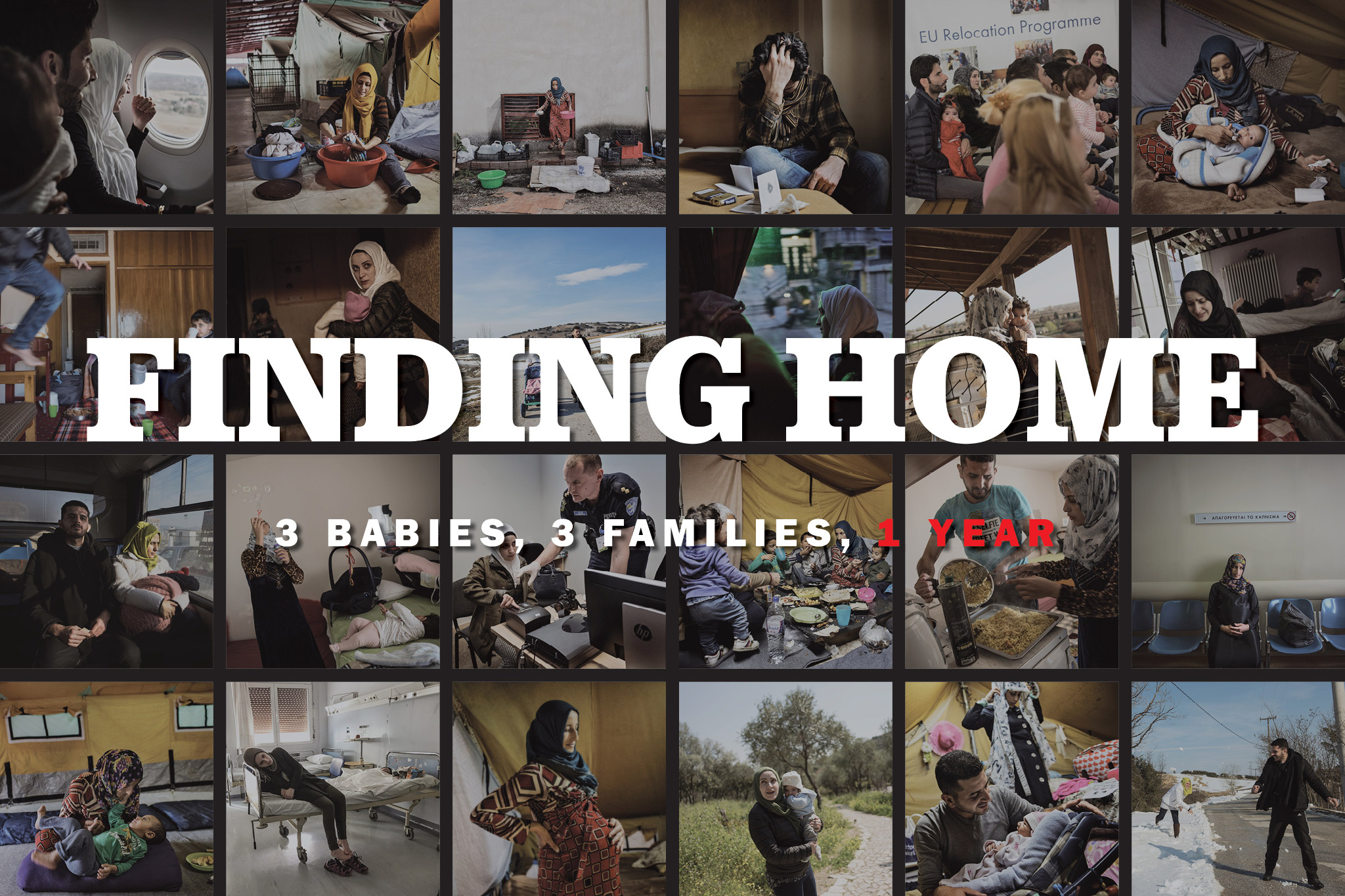The story so far
Since September 2016, TIME has been following three Syrian refugees as they prepared to give birth and raise a child in a foreign land. All of the women learned of their pregnancies on the road and none expected to deliver in a refugee camp, far from the homes they fled in Syria. These women are among the more than 1,000 refugees who gave birth in Greek refugee camps in 2016 alone. As babies, born of no nation, take their first steps, they face an uncertain future. Their parents continue their search for a home in a world that is increasingly hostile to refugees.
Follow us as the story unfolds daily on Instagram, watch Heln’s First Year and see the journey mapped across the globe on Google Earth. Click here to find out how you can help.
This daily struggle plays out against the backdrop of Europe’s newest experiment to integrate hundreds of thousands of refugees, some into countries that have very little experience with outsiders. With our year-long multimedia project, “Finding Home,” TIME brings you their stories.
Photographs by Lynsey Addario | Reporting by Aryn Baker | Video by FrancescA Trianni
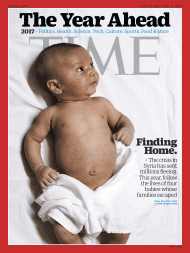
Watch the TRAILER:
Meet the families
Taimaa and Heln
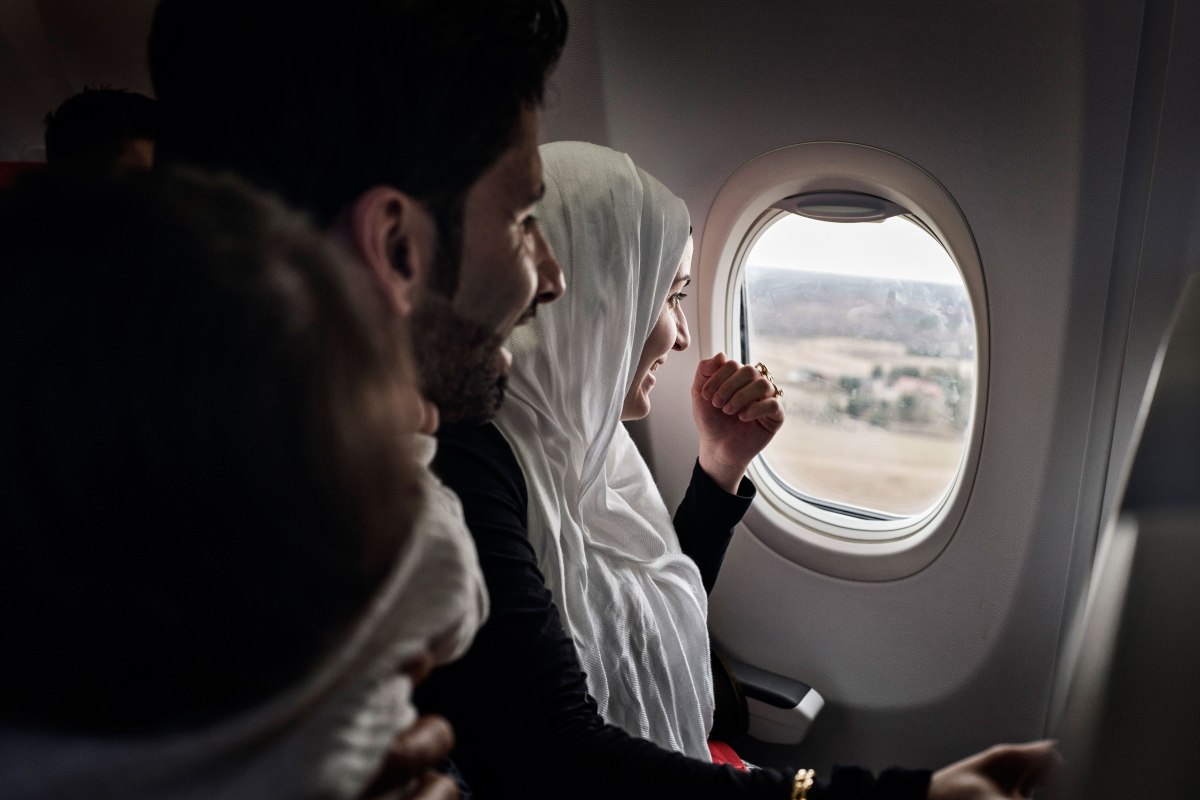
Taimaa, her husband Mohannad and their children, Wael and Heln, on the first flight of their lives arriving in Estonia’s capital, Tallinn. Lynsey Addario—Verbatim for TIME
Taimaa Abazli used to say that she didn’t care where she went, as long as “it’s not here,” referring to the 100 sq. ft. tent in the Karamanlis refugee camp in Northern Greece where she could smell decomposing frogs under the canvas floor. When her daughter Heln—Taimaa says she wanted a “modern” spelling of Helen—was born on Sept. 13, she thought she would be relocated quickly. Instead it took seven months, and she ended up — after a dramatic visit to Athens for an interview — with asylum in Estonia, a country she knew nothing about and whose name she could barely pronounce. But Estonia was challenging, and her husband worried that he wouldn’t be able to find a job. So he decided to bring the family to Germany. Now they are back in a refugee camp, waiting to see if they can appeal their asylum assignment. View their story through Heln’s First Year.
Nour and Rahaf
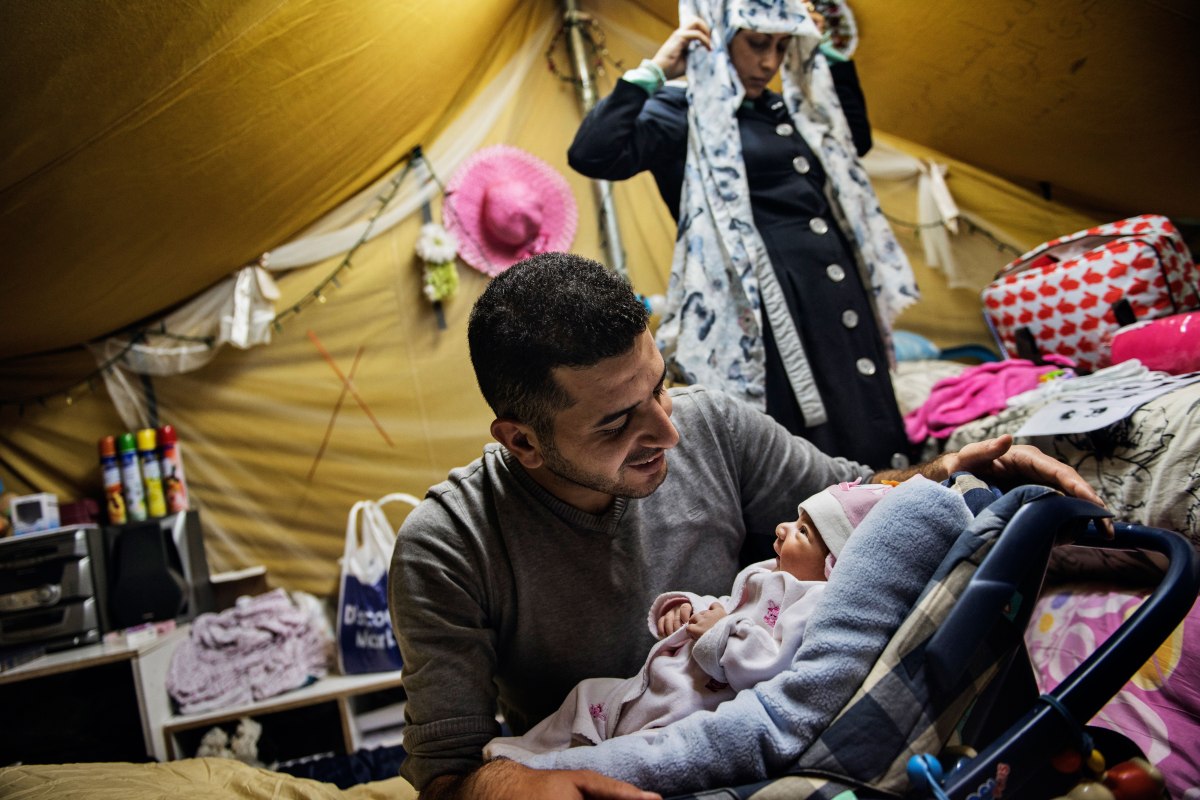
Inside their tent in the Oreokastro camp, the 22-year-old new mother stands behind her husband Yousef and their newborn daughter Rahaf. Lynsey Addario—Verbatim for TIME
Nour Altallaa has dreamt of having children since she was a girl growing up in the Syrian city of Deir ez-Zor. But she always thought her mother would be there, helping her through labor and her first years as a mother. Instead, Nour watched online videos on childbirth to prepare herself—which doesn’t mean she was prepared. “I am afraid,” Nour said when she took baby Rahaf home from the hospital. “I don’t know what is normal, but I will look on the Internet. I learned from YouTube how to crochet dresses. I learned about childbirth. And now I will look up how to take care of a new baby.” After waiting for over a year to find out which country in Europe would take them in, in often difficult conditions, Nour and her husband have learned they will be moving to Germany. But it’s an open question whether the country represents the Promised Land some refugees believe it to be.
Illham and Faraj
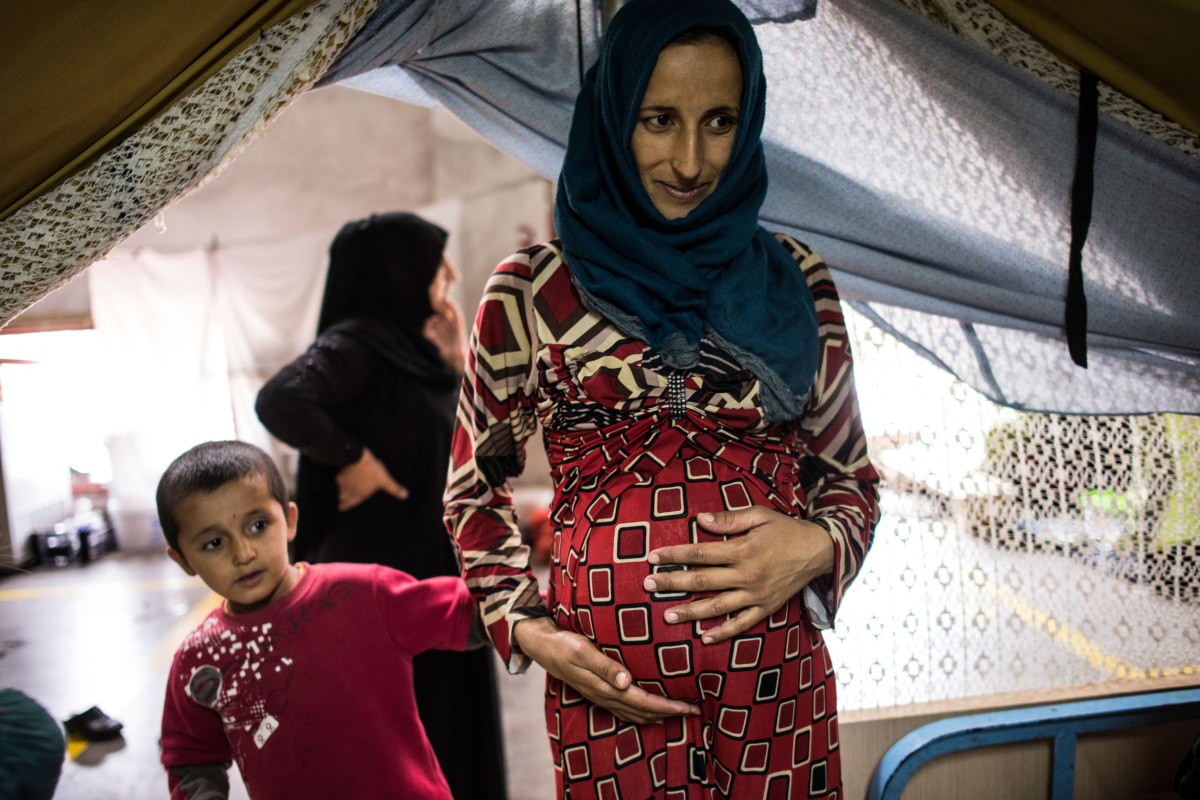
Pregnant with her fifth son, the 23-year-old mother from Deir ez-Zor, Syria, says “I don’t care where we go, as long as we go somewhere soon. Lynsey Addario—Verbatim for TIME
Illham Alarabi knew it was time to flee Syria the day fighter jets strafed her village near Deir ez-Zor. She and her husband Minhel Alsaleh left with their children the day after she gave birth to her fourth son. In Greece, Illham was pregnant again—though unlike some of the other women in the camp, she looked forward to childbirth. “At the hospital someone else does the cleaning, you only have one kid to take care of, and there is a bathroom in your room,” she says. “It’s like a spa.” After Illham brought baby Faraj home, she hosted friends in the family’s tent for a celebration—though the privations of refugee life dampened things somewhat. “When a baby is born in Syria, we slaughter a lamb and eat meat,” she says. “Here we will slaughter a croissant.” Illham and her family were rejected from asylum in Lithuania, and are seeking to build a life in Greece.
Behind the scenes
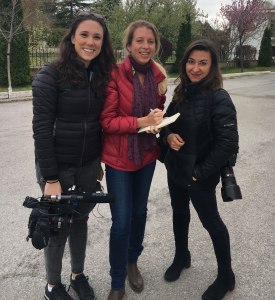
TIME’s staff video journalist Francesca Trianni, Africa bureau chief Aryn Baker and award-winning photojournalist Lynsey Addario (L-R, above) began covering the three families from inside the refugee camps in Thessaloniki, Greece, where few reporters have had access. As the families are assigned and relocated, we follow their journey.
Continued reporting for this project is supported by a grant from the Pulitzer Center on Crisis Reporting and Merck for Mothers
Follow our families on Instagram as their travels continue. Want to help? Click here.

